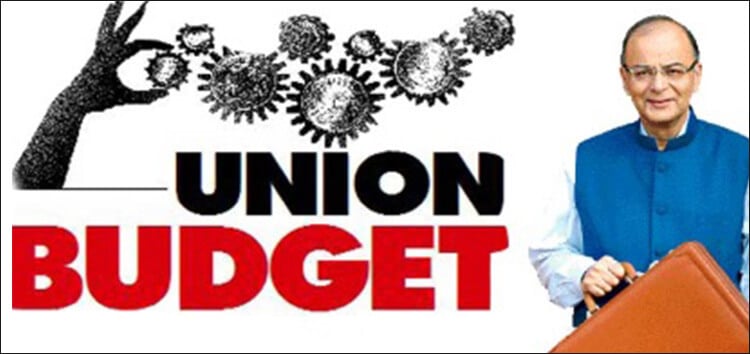
Union Budget 2017-18 will be announced in the first week of February. Structurally it will be unique and pioneering in 3 distinct ways. Firstly, it will be the first budget to be presented on the 01st of February instead of the last working day of February each year. This will mark a departure from an old colonial tradition that was being followed for over 9 decades. Secondly, for the first time there will be no separate railway budget. Normally, the rail budget was declared 2 days prior to the Union Budget and the Economic Survey was announced the day before the budget. The Union Budget 2017-18 will present the railway related allocations and decisions as part of the Union Budget itself. Lastly, this is the last possible Union Budget ahead of what is, possibly, the most drastic modification to indirect tax laws via the introduction of GST.
The forthcoming budget also becomes important as it is being presented in the light of 2 very critical realities. Firstly, this budget comes a few months after the demonetization exercise was initiated by the Modi government. Hence it is likely to contain measures to underscore the core message of demonetization and also attempt to soothe some of the pain that individuals have gone through. Secondly, this will be the penultimate Union Budget as the government will present a vote-on-account in 2019. Governments have historically tended to bring in a liberal measure of populism from their penultimate budgets and this budget is unlikely to be an exception. Here are 4 key themes that may stand out in Union Budget 2017-18.
Expect some liberal income tax shifts…
What better way to soothe the hard road to demonetization than by making the tax structure more realistic. There has been a long-standing demand to raise the base exemption income limit from Rs.2.5 lakh to a more realistic level of Rs.4 lakh. While the entire shift may not happen in a single budget, the process may begin in this budget. There have also been demands that the exemption limits under Section 80C and Section 24 be enhanced since the current limits do not really reflect the reality in the market. We can also look forward to some serious rethinking of the tax structure by clubbing a plethora of exemptions. This budget may actually make the entire Income Tax process simpler and result-oriented.
Expect major incentives for digital transactions…
We have already seen these benefits emerging in bits and pieces in the last few months. For example, digital transactions were given temporary relief from transactions charges. Additionally, the government has also announced lower presumptive tax on small businesses that get their revenues purely via the digital route. This budget may see a formal and comprehensive structure to incentivise digital transactions. To begin with, the waiver of transaction charges on digital transactions may be made a permanent incentive to encourage digitization of money and a shift towards cashless transactions. The Union Budget may also provide additional tax incentives for those who do more than a certain percentage of their transactions via the digital medium, including credit cards, debit cards and digital wallets. Providers of payment bank services may also be incentivized to reach out more effectively to the unbanked population.
Big investments in infrastructure, including railways…
This budget may see massive allocations to urban and rural infrastructure. The previous budget saw a big focus on rural infrastructure and rural spending. The government has used the demonetization to push digitization and banking penetration in a big way. This will help ensure that the benefits of rural spending are transmitted to the end users in a more efficient and seamless manner. Apart from the usual infrastructure projects, affordable housing could also get added focus. We have already seen that focus in the PM’s year-end speech and the budget may sharpen that focus. But the biggest investment outlay could be seen in the railways. We may see massive investments in new lines, upgrading existing rail infrastructure, remote connectivity, safety and security etc. This budget may actually entail a paradigm shift in the Indian Railways.
Capital market transactions under the scanner…
One of the developments may be that the government may call upon the capital market profits to be taxed more meaningfully. Currently, long term capital gains are tax free while short term capital gains are taxed at a concessional rate of 15%. Last year the government introduced a 10% additional tax on dividends for those who earn over Rs.1 million as equity dividends per annum. Considering that the PM had made a direct reference to equity investors paying more tax, there are quite a few possibilities. Firstly, the definition of capital gains in case of equities may also be shifted to 3 years instead of 1 year. Secondly, it is likely that STCG will get taxed at the peak tax rate as is the case with interest and other income. Lastly, there is the possibility of a presumptive tax on capital gains in the form of TDS to put a minimum liability and reduce profit reduction through loss adjustments. The message could be that equities may come under the taxman’s scanner in this budget.
The forthcoming budget is likely to mark a few shifts. Unlike the usual budgets where a full section is devoted to specific indirect tax rates, this budget may elaborate specific GST rates. The theme will be to digitize tax collections and also digitize budget delivery. That will surely mark a big shift.
We're Live on WhatsApp! Join our channel for market insights & updates
Enjoy ₹0 Account Opening Charges
Join our 2 Cr+ happy customers